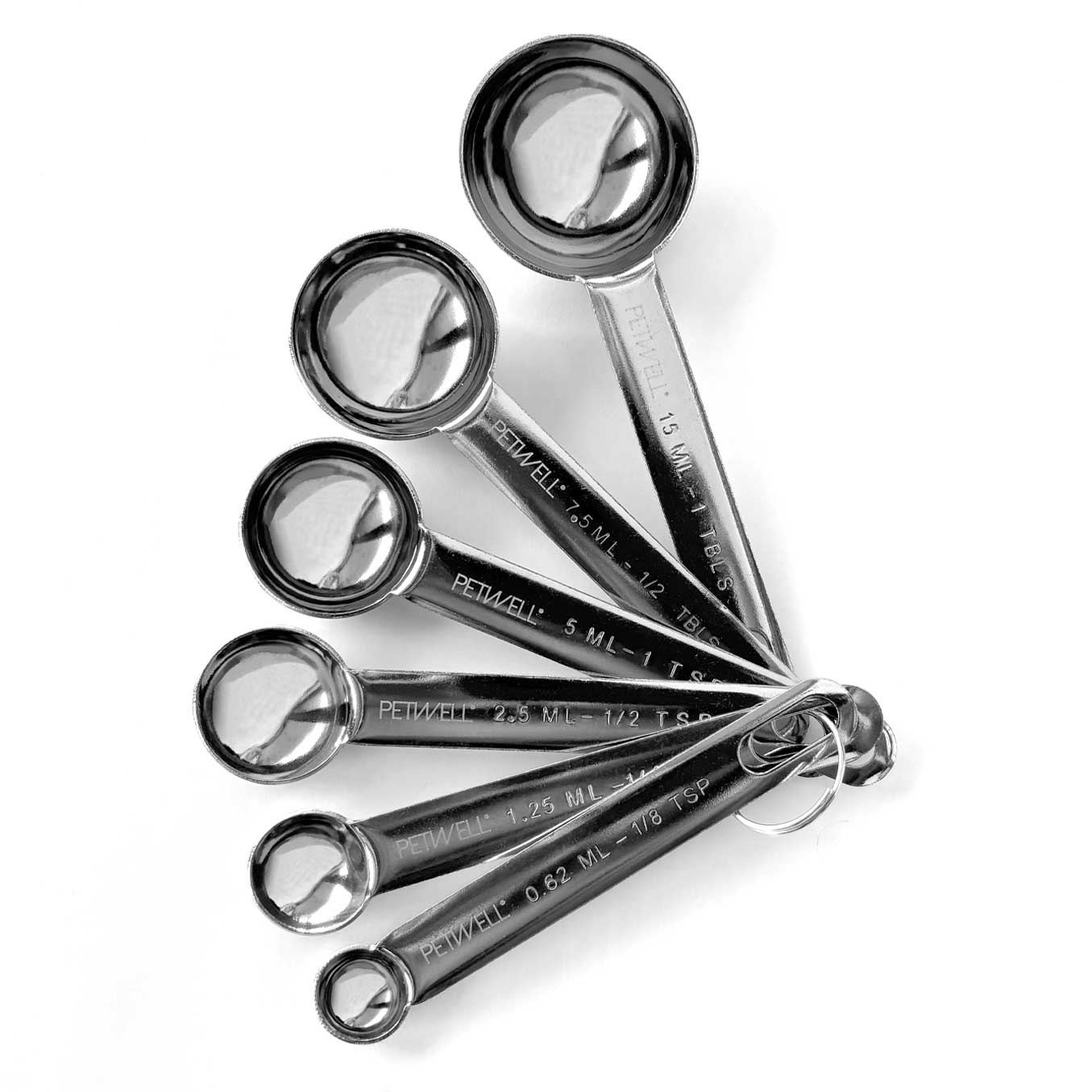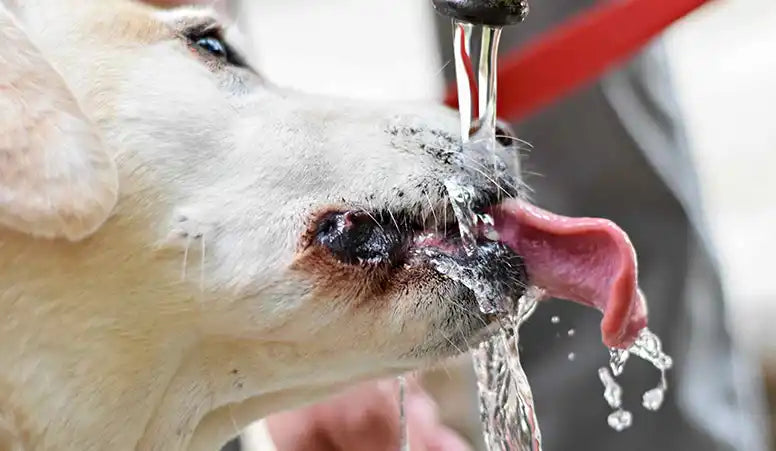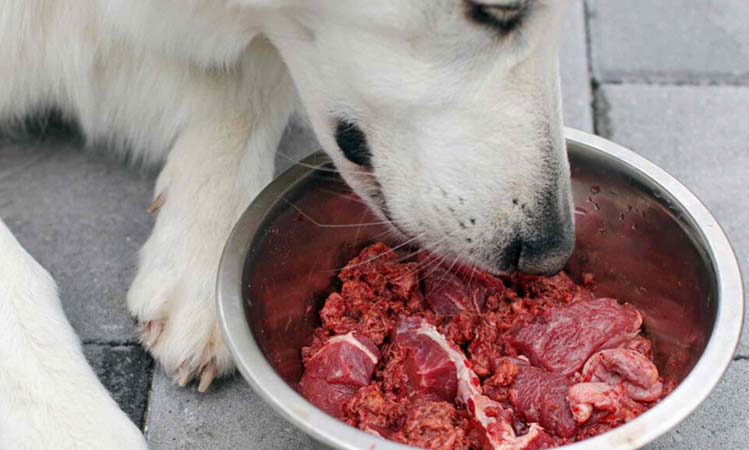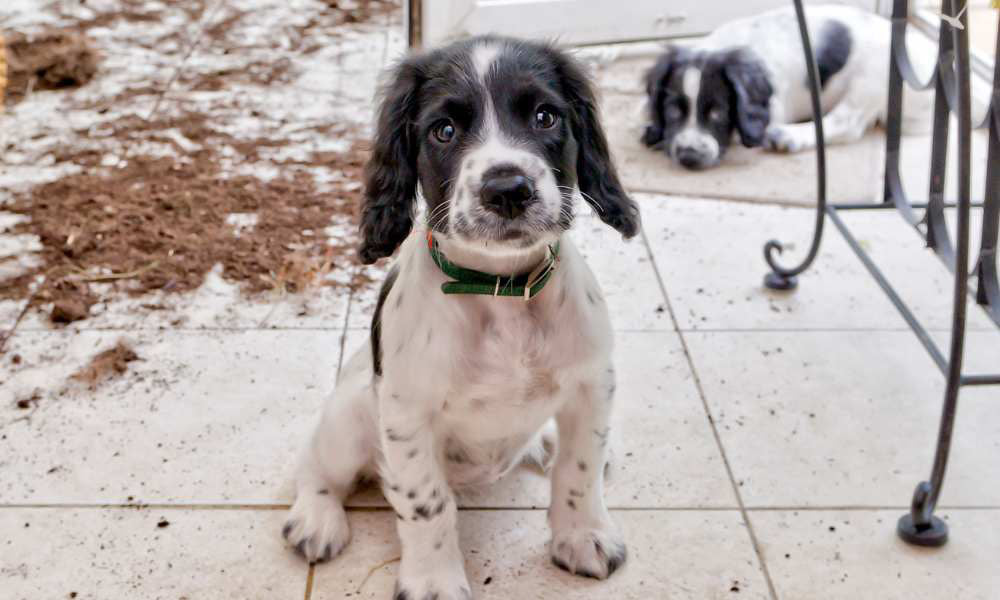If your dog’s barking at every leaf, chewing through your shoes, or digging up your garden, you’re not alone. But what causes dog behaviour problems, and how can you fix them naturally?
Most dog behaviour issues aren’t about being “naughty”, they’re a dog’s way of saying, “Hey, I’m anxious, bored, confused, or uncomfortable.”
Understanding why dogs misbehave (and choosing gentle, natural fixes) helps you create a calmer, happier home, and a much more relaxed pup.
PetWell Tip: Natural support like CALM, DIGEST, MOBILITY, and RELIEF can make training easier by supporting your dog’s body and mind from the inside out. Check out PetWell supplement range HERE
Why do dogs misbehave?
The fact is dogs don’t wake up thinking, “How can I annoy Mum today?” When a dog acts out, there’s always a reason behind it.
Their behaviour is shaped by instincts, emotions, and experiences.
- Pack instincts: Dogs are social creatures, they crave structure and connection.
- Predatory instincts: The urge to chase birds, bikes, or even shadows is hard-wired.
- Territorial instincts: Barking at the doorbell? They’re protecting their space.
Understanding this instinct is crucial for managing territorial aggression and creating a secure environment for your dog.
Emotionally, dogs feel fear, stress, joy, excitement, even frustration, they just express it differently. Add in past experiences (like neglect, lack of socialisation, or trauma), and it’s easy to see why some dogs struggle to “fit in” at home.
Once you understand what’s driving the behaviour, you can start guiding your dog toward calmer, more confident habits, with kindness, not punishment.
What causes dog behaviour problems?
Dog behaviour problems rarely come from a single cause, it’s usually a mix of factors.
Here’s what tends to play a role:
- Genetics: Some breeds are naturally more vocal, protective, or high-energy.
- Early life experiences: Poor socialisation between 3–12 weeks can lead to fear, anxiety, or aggression later in life.
- Environment: Boredom, confinement, or inconsistent routines can trigger frustration.
- Health issues: Pain, gut problems, or itchy skin can make dogs irritable.
- Training gaps: Inconsistent boundaries confuse your dog.
- Isolation or trauma: Dogs left alone too often, or those with a rough past, may act out from fear or loneliness.
Always start by ruling out medical causes with your vet (ideally a holistic vet who understands both physical, nutritional and emotional health). Once you know your dog isn’t in pain, you can focus on retraining and enrichment.
What are the most common dog behaviour problems and how do you fix them naturally?

Here’s a quick-fire list of the top 10 behaviour problems in dogs, and gentle ways to fix them.
1. Attention-seeking
Barking, pawing, or jumping for attention? Classic cry for connection.
Fix it: Ignore the behaviour, reward calm moments, and add mental stimulation like puzzle toys or sniff walks.
2. Excessive barking
Dogs bark to communicate, but constant barking signals boredom or anxiety.
Fix it:
- Make sure they’re getting enough exercise and engagement.
- Close blinds or play white noise to reduce triggers.
-
Reward silence and calmness, never yell, it reinforces the noise!
Read more about Why Dogs Bark? 7 Reasons & How to Stop Excessive Barking
3. Separation anxiety
Your dog’s world revolves around you, so being alone can feel terrifying.
Fix it:
Start with short departures and build up gradually. Change your leaving cues (grab keys without leaving).
Read more on Separation Anxiety in Dogs: How to Help Your Dog
Support: PetWell CALM or CALM + TURKEY Functional Treats can help ease stress naturally while you train independence.
4. Destructive chewing
Dogs chew to relieve stress, boredom, or teething pain.
Fix it:
- Redirect their chewing by providing chew toys and reward when they use them.
- Rotate toys to keep things interesting.
- Keep valuable items out of reach and ensure they get enough exercise.
5. Begging for food
Those big eyes are powerful, but giving in teaches your dog that begging works.
Fix it:
- No eye contact during meals.
- Send them to their mat and reward when they stay calm.
- Stick to regular feeding times to avoid scavenging.
6. Aggression
Aggression usually comes from pain, fear, or poor socialisation, not dominance.
Fix it:
- Visit your vet first to rule out pain or illness.
- Work with a certified dog behaviourist.
- Avoid punishment, it fuels fear and can worsen aggression.
Read more about Dog Aggression & Resource Guarding: Natural Solutions
7. Chasing
Chasing moving things is a primal instinct, but it can be dangerous.
Fix it:
- Keep your dog leashed near triggers.
- Teach recall (“come”) and reward heavily with high value treats.
- Offer safe chase outlets, like fetch or flirt-pole games.
8. Jumping up
Excited greetings are normal, but not everyone appreciates muddy paws.
Fix it:
- Turn away or step back until your dog has four paws on the floor.
- Reward calm behaviour immediately.
- Be consistent, no “sometimes” jumping!
9. Digging
Dogs dig for fun, comfort, or curiosity, it’s instinctive, not defiance.
Fix it:
- Create a “dig zone” (like a sandpit) and hide toys for treasure hunts.
- Use natural deterrents (pepper or vinegar) in no-go areas.
- Exercise and play daily, a tired dog digs less.
Read more on Why Dogs Dig and How to Stop It
10. Inappropriate toileting
If your housetrained dog suddenly has accidents, something’s off.
Fix it:
- Rule out urinary or gut issues with your vet.
- Reinforce outdoor toileting with treats and praise.
- Stick to a predictable toilet schedule.
How do anxiety and stress affect dog behaviour?

Just like humans, dogs get cranky or withdrawn when they’re stressed. Anxiety can trigger barking, chewing, pacing, and even aggression.
Create calm through routine, exercise, and safe space time.
Try this simple daily rhythm:
Morning: toilet → sniff walk → breakfast via puzzle feeder
Midday: training game or enrichment toy
Evening: play → dinner → quiet wind-down
If your dog struggles to switch off, PetWell CALM supports relaxation with ingredients like green tea and chamomile (both natural sources of L-theanine and L-tryptophan).
Do rescue dogs and puppies need different training approaches?
Absolutely. Every dog’s history shapes how they learn and respond.
Puppies: thrive on early, positive socialisation. Introduce new people, sounds, and places calmly. Keep training short, fun, and full of praise.
Rescue dogs: often carry emotional baggage. Build trust slowly with patience, predictability, and gentle guidance. Don’t rush affection, let them come to you.
Both need consistency, kindness, and confidence from you, their leader and safe place.
When should I call a dog trainer or behaviourist?
If your dog shows aggression, severe separation anxiety, or destructive behaviour that’s escalating, don’t wait.
A qualified force-free behaviourist can identify the triggers, create a training plan, and help rebuild your dog’s confidence.
You’ll get faster results and strengthen your relationship instead of battling frustration.
How can PetWell help with dog behaviour problems naturally?
PetWell’s range of naturopath-formulated, vet reviewed, human-grade supplements is designed to support dogs inside and out, helping balance mood, comfort, and wellbeing.
CALM – Anxiety and CALM + TURKEY Treats
Reduces anxiety, improves relaxation, and supports emotional balance.
MOBILITY – Hip & Joint Support Supplement and MOBILITY + BEEF Treats
Supports joint comfort for calmer, more comfortable movement.
DIGEST – Gut Health Supplement and DIGEST + KANGAROO Treats
A healthy gut helps regulate mood and stress levels through the gut-brain connection.
RELIEF – Allergy, Skin, Coat + Immunity Support Supplement and RELIEF + VENISON Treats
Soothes itching and irritation that can trigger restlessness or irritability and boosts immunity
Freeze-Dried Treats (Chicken, Salmon, Crocodile, Sardines & more)
Clean, single-ingredient rewards that make training healthy and rewarding.
All 100% natural. All proudly Australian-made.
Dog Behaviour FAQs
Q1: Why is my dog barking when left alone?
They’re anxious about separation. Start with short absences, build up slowly, and try PetWell CALM to support relaxation.
Q2: Why does my dog chew furniture?
It’s usually boredom or stress. Add more enrichment, rotate toys, and ensure they’re getting enough mental exercise.
Q3: How much exercise does my dog need?
Most adult dogs need 60–90 minutes a day, including sniff walks, play, and training.
Q4: Can diet really affect my dog’s behaviour?
Yes! Gut imbalances and poor nutrition can cause anxiety or irritability. Try DIGEST for gut support and use freeze-dried treats for training rewards.
Q5: Should I punish my dog for bad behaviour?
NO NO NO! Punishment increases fear and breaks trust. Use positive reinforcement, reward what you want, redirect what you don’t.
Final Thought: There’s No Such Thing as a “Bad” Dog
Every unwanted behaviour has a reason, and usually, a fix. When you lead with patience, routine, and the right support, your dog will flourish.
So take a breath, put away the frustration, and remember, they’re not misbehaving, they’re communicating. Listen, guide, and love them through it.
Additional reading:
On-Leash Dog Greetings: Do’s & Don’ts for Safer Walks
Respecting Dog Boundaries: Build Trust and Calm Dog Anxiety
7 Practical Dog Training Techniques
Why Dogs Eat Grass
Dog Body Language
Dog Socialisation Tips for Calm, Confident Dogs
Why Dogs Dig
Disclaimer: The entire contents of PetWell emails and website are not to be taken as medical advice. The team at Pet Squad Pty Ltd trading as PetWell encourages you to make your own pet health care decisions based on your research and in partnership with a qualified pet healthcare professional.
This article was prepared by the team at PetWell. Australia’s trusted provider of natural, human-grade pet supplements and freeze-dried treats for dogs and cats. Drawing on holistic animal behaviour insights and years of working with canine clients, PetWell champions kind, calm and scientifically informed solutions for every pet parent.
Posted By Ayda Hornak - Trained in Canine Psychology and Natural Animal Nutrition Care















































